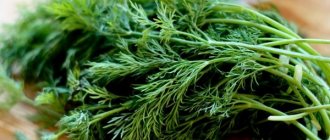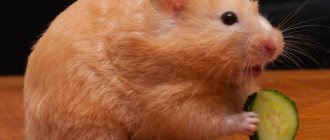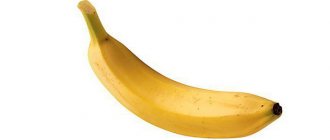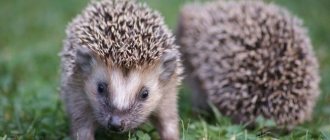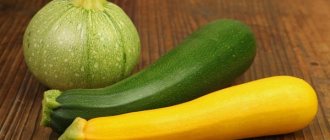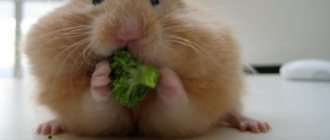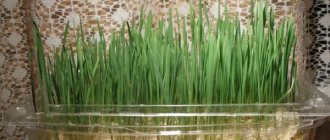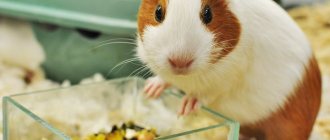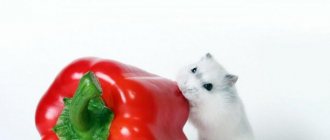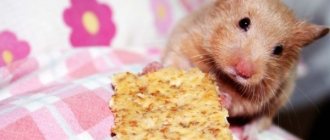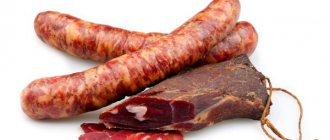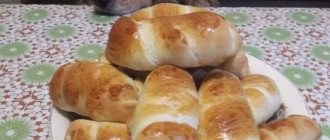Can hamsters eat peas, beans and corn? This is an important question when choosing a diet for your furry friend. Cereals and grain mixtures are the main component of a hamster’s diet. But it is important to feed your rodent a variety of foods to keep your pet healthy and active. You should familiarize yourself with the basic recommendations for creating a hamster’s diet so as not to accidentally harm it.
Can hamsters eat peas, beans and corn?
Can hamsters eat peas, beans and corn? This is an important question when choosing a diet for your furry friend. Cereals and grain mixtures are the main component of a hamster’s diet. But it is important to feed your rodent a variety of foods to keep your pet healthy and active. You should familiarize yourself with the basic recommendations for creating a hamster’s diet so as not to accidentally harm it.
What to feed the baby?
A small hamster has a very delicate digestive system, so it needs to be fed differently than an adult animal. A baby up to three months old eats often, but little by little. There should always be a dry grain mixture in the feeder, although many babies do not really like to feast on it. It is advisable to give your hamster one product per day from fresh greens, so as not to provoke intestinal upset. For the same reason, you should not treat him with exotic fruits. You can sprout lettuce, wheat, beans, and peas for the baby. Young shoots are easily digestible and rich in microelements necessary for the full growth and development of the animal. Regular baby food that combines meat, cereal and vegetable ingredients is well suited for a newborn animal. Baby porridge or puree is placed in a bowl and placed directly in the cage.
Can a hamster eat peas?
Peas are on the list of approved foods for hamsters. Rodents can be given dry peas, softened with hot water or fresh. Whole pea pods are also allowed. Djungarian hamsters prefer fresh grains.
Peas can be cooked - boil for 10 minutes and cool well. Hot peas can burn your pet. It is forbidden to add spices, since animals are not able to digest salty, hot or spicy foods.
Many specialized rodent foods contain dried peas. Treat your homa to a similar mixture or add dried chickpeas to your cereal feed yourself.
What to feed an old hamster?
A hamster becomes an old man by the age of two years. The owner may observe lethargy in the pet, lack of appetite, and almost complete grinding of teeth. An animal at this age is no longer able to eat roughage, so the diet must be radically changed. Nuts and grains should be ground into a paste, and vegetables and fruits should be grated. You should not refuse ready-made dry mixtures: they support the normal functioning of the digestive system. Vegetable and meat baby porridges and purees are optimal for an old animal.
Can hamsters eat beans?
Beans are a healthy product that can be given to a rodent. It is recommended to feed your pet raw beans. It is allowed to use thoroughly defrosted legumes. For example, you can buy a frozen mixture with beans, peas, and healthy vegetables. Dzungarians and Syrians love to enjoy green beans. Red beans (Kidney) can harm the animal’s body, so adding them to the animal’s diet is prohibited.
Can hamsters eat corn and in what form?
Hamsters are allowed to give corn, since this product contains a large amount of protein, various vitamins, microelements, amino acids, and various beneficial substances. At the same time, corn grains contain a small amount of fiber, which has a beneficial effect on the pet’s digestive system. Corn contains amino acids that are not produced by the hamster's body. Supplementing the diet with grain compensates for the deficiency of these elements. Due to their composition, corn kernels have a positive effect on the aging process of the body, increase muscle tone, and help prevent the development of cancer.
Corn can be given to your hamster in several forms:
The corn should not be cooked for long (no more than 15 minutes), without adding spices. After cooking, the corn kernels or cobs are well cooled so that the pet does not get burned.
Dried grains may be too hard for your pet. It is recommended to pour hot water over the grains and leave for 15 minutes to soften them. Pets eat softened grains more readily.
It is prohibited to give canned corn to animals. When preserving, elements harmful to the animal’s body are added to the product - sugar, salt, herbs, spices. Animals should also not be given any other canned food.
Dzungarians and Syrians can be given home-cooked popcorn as a treat. One piece will be enough for the animal. Cooked popcorn should also be well cooled before feeding to the rodent. No additional ingredients should be added to the product.
It is not recommended to give store-bought popcorn, as it contains sugar, salt, large amounts of fat, and other additives that are dangerous to the hamsters’ body. Many food mixtures for rodents supplement popcorn, so instead of a homemade product, you can give a special mixture. This delicacy contains more nutrients and is more convenient to use.
Another product containing corn is corn sticks. In the process of making sticks, corn grain is ground into flour, which significantly reduces the content of nutrients. Sugar, salt, and food additives are also added. The final product is harmful to the pet’s body, so you should avoid such “treats.”
Corn flakes are prepared in a similar way, so they should not be added to the animal's diet. Products containing sugar are especially harmful to Djungarian hamsters, since animals of this breed are prone to diabetes.
In stores you can find dairy-free corn porridge for baby food that does not contain gluten. Prepare the porridge according to the special instructions on the package. Porridge will be a healthy treat for the animal.
Thus, peas, beans, and corn are healthy foods necessary for a hamster. It is necessary to add such food to the animal’s diet in an approved form without additional spices, herbs, or seasonings. But it is worth remembering that you cannot limit your animal’s diet to legumes or grains alone. Feed your animals vegetables, fruits, dry mixtures, feed, and various variations of these products. Create your own “meals” from a mixture of products and offer them to your pet.
Corn
To diversify your hamster's diet, you can give him corn. But keep in mind that it cannot be used as preserved food. It is dangerous for hamsters to eat canned corn due to the preservatives contained in the product. Artificial additives and flavors become poison for their body.
ATTENTION! It is better not to give corn to Djungarian hamsters, this is due to their predisposition to obesity and high sugar content.
You can feed your hamster corn in any other form:
- Dry. Dry grains are good for hamsters to eat, but they are reluctant to eat them due to the lack of special taste.
- Fresh. Grains are very useful for a hamster, as they contain 26 elements of the periodic table, which makes it possible to treat many diseases of the animal. They're great for variety, but don't feed them too much as fresh corn contains a lot of natural sugar, which can be harmful to your pet. The cobs and leaves are also suitable for consumption; they contain many vitamins that are beneficial for pets of any age.
- Boiled. Despite the fact that after heat treatment some of the vitamins are lost, it is also possible to give grains to hamsters in this form. To do this, you need to cook them for up to 20 minutes, otherwise they become tough, less tasty and healthy.
- Soaked. It is preferable to feed soaked grains, this way all the beneficial substances and microelements in the product are preserved. In addition, hamsters will eat soaked corn much more readily than dry corn.
- Corn porridge. You can give it to hamsters every day, regardless of age and health status. You need to cook the porridge in water, without adding spices or oil.
Corn is healthy, which is why it is often recommended by veterinarians to treat diseases associated with digestive problems. You can take it as a preventive measure for cancer; for this you need to cook porridge, or mix different types of grains.
Corn sticks, cereal and popcorn
Corn is good for hamsters, but you should be careful with the products made from it, as they are harmful due to the high content of additives.
Because hamsters should not be given any spices, corn sticks and flakes should not be given to rodents. A high content of artificial sugar can lead to the development of diabetes in a rodent, which often results in complications and early death.
Popcorn is included in some foods and can also be prepared at home without the use of additives. However, the store-bought product is dangerous for hamsters due to the content of salt, sugar, preservatives and oil.
In what form is it better to give corn to a hamster?
The pet's stomach is very small. Only healthy products that help maintain the required percentage of muscle mass, provide vital energy, and ensure a healthy appearance for the pet should go there. Let's consider what kind of corn is best to offer your hamster to get the maximum benefit.
Fresh
A small rodent will like it. It is convenient to use. Does not require preliminary preparation. It contains the largest amount of vitamins A, B, E, PP, essential microelements (calcium, magnesium, iron, selenium, phosphorus, potassium and others), a lot of protein and fiber in moderate quantities, which promotes digestion.
Boiled
Cooking this product does not deprive it of its beneficial properties, because the integrity of the grain shell remains intact. The dish will not cause harm if prepared without adding salt, sugar or other seasonings.
You should also be careful about the temperature of the cooked cereal. Cool the corn completely before serving in the bowl to avoid burning your hamster.
Dry
The pet may eat the cereal in this form less willingly, gnawing out the softer center, or not show interest at all.
This suggests that the delicacy is simply too much for him. Then you should first soak the grains by pouring hot water over them for several hours.
Canned
The queen of the fields in this form is very attractive to humans and very dangerous to a hamster. When making corn in a jar, additives are used to extend shelf life and flavor enhancers. And this has a detrimental effect on the health of the internal organs of a small animal and causes various diseases.
Corn
This cereal is rich in microelements - iron, calcium, magnesium, phosphorus, selenium, potassium, etc.; vitamins - B, E, A, PP. In addition, the composition contains amino acids that are necessary for the body and cannot be produced independently. This cereal is the leader in protein content. Eating corn will be extremely beneficial for the rodent, and will also serve as a preventative against cancer and help prolong life.
Corn can be given:
- fresh;
- dry - if difficulties arise, it can be soaked in water;
- boiled - for a rodent, corn is cooked without adding salt or sugar, served cooled so that the animal does not get burned.
Canned food
Eating canned food for hamsters is undesirable; preservatives and flavor enhancers are added during production, which can have a detrimental effect on the health of the animal.
Popcorn
Rodents can be given popcorn as a treat, but only if it is prepared by you personally (remember to cool the product before serving to avoid burns). Store-bought popcorn is made with added fat and seasonings, so it is not suitable for rodents.
Popcorn should act as a treat; frequent consumption of popcorn is undesirable, since this product is “heavy” for a hamster to digest.
Cornflakes
During the preparation of flakes, all components undergo heat treatment, and food additives are added to them.
Firstly, during heat treatment, no useful substances remain from the cereals, and, secondly, sugar and salt can be harmful, so eating corn sticks or flakes by hamsters is prohibited.
Despite the obvious benefits of corn, it can be given in moderation, like any other product.
With the right diet - no food additives (salt, sugar, etc.) and a balanced diet, your pet will live a long and healthy life.
Along with other important aspects of keeping rodents, nutrition comes first, so it is very important to know whether the consumption of certain products is acceptable. It is the diet that affects the quality and life expectancy of your pet.
What I am a master at is talking incessantly about hamsters. I have three hamsters at home, and my husband has a pet rat. That’s how we live, the six of us eat, the six of us sleep :)
Dzungariki are small decorative rodents with an accelerated metabolism and excellent appetite. The funny animals are constantly chewing something and are able to eat up to 70% of their body weight in a day.
True, the habit of eating everything can cost them their health and sometimes their lives. Therefore, the owner of a Djungarian hamster needs to know what can be fed to the pet and what is prohibited.
- What can a dwarf hamster eat?
- Grain mixtures
- Fruits and berries
- Vegetables
- Greenery
- Protein food
- Dairy
- Bread, nuts, dried fruits
- What not to feed Djungarian hamsters
Why shouldn't hamsters be given popcorn?
When manufactured in production, fats, sugars, and salt are added to the corn-based product to make the airy delicacy more attractive to the buyer. This is also what makes popcorn harmful to your pet. Djungarian hamsters can develop diabetes from such “goodies.”
If you want, you can pamper the animal with homemade puffed corn without additives. Sometimes it is present in this form in prepared animal feeds. This is convenient because... The contents of the pack are already ready to eat.
Rest assured, the manufacturer has thought through the quantity, nutritional value and safety for you. You just need to look at the daily value on the packaging and feel free to offer the treat to the animal.
Hamster diet
The Syrian hamster is fed 2 times a day, morning and evening. Typically, Syrian hamsters will eat a tablespoon of their diet, but it all depends on the size and activity of the hamster. You can also periodically give pieces of fruit and other treats to your hamsters. At the same time, it is very important to monitor how much food the hamster can take in. If there is more food than he can eat, then the pet will make deposits for his food. It is worth making sure that the food does not start to rot; if this happens, then you need to remove these supplies in a timely manner.
Djungarian hamsters feed once a day. The feeding time of the hamster should be set in the morning or evening, and be sure to feed at the same specific time. Despite their small appearance, Djungarian hamsters are supposed to be given one tablespoon of food or cereal mixture.
Corn sticks and flakes in a hamster's diet
These products undergo heat treatment and are then generously supplied with sugars, salts and other flavor enhancers. During these procedures they completely lose their nutritional value. Eliminate them from the diet if you want your pet to live long and be healthy.
If the animal shows unprecedented joy at the sight of popcorn or selflessly gnaws on the cob all day, then it’s worth thinking about consumption standards. The animal's diet must be balanced. In large quantities, corn can be harmful.
If all the conditions of a proper diet are met, your pet will live a full and long life, delighting you with its companionship.
What to feed a pregnant female?
Gestation of babies in hamsters lasts up to 20 days. During this period, the female should receive the maximum amount of useful microelements. The daily menu of a pregnant pet must include as many high-protein foods as possible, fresh herbs and cereal sprouts, which contain many nutrients. The expectant mother eats with appetite and gets very worried when there is little food in her feeder. Therefore, it is advisable to pour as much food into the bowl as possible. It is recommended to place a piece of chalk or a mineral stone in the cage, which is sold at any pet store. The female will nibble on the treat and receive the salts and minerals needed by the cubs developing in the womb.
Peas for a hamster
Peas are a source of vegetable protein and vitamins E, K, B, A. It contains useful minerals and trace elements.
Can hamsters eat peas? The answer to this question is yes. It is possible and even necessary. This tasty and nutritious treat is good for rodents.
In what form to give peas:
- Offer the animal dry peas, and if it is difficult for him to chew, then soak it in water or boil it before eating. Cook for up to 10 minutes.
- Animals love fresh peas, so feed them on the cob.
- You can buy crushed peas at pet stores. It is very convenient for them to feed their pet.
Be sure to include this product in your rodent's diet, but remember, your hamster cannot eat canned peas. It contains preservatives and spices that are harmful to the animal.
What can a dwarf hamster eat?
The delicate stomach of these animals is not suitable for digesting fatty foods and sweets. When thinking about what to feed Djungarian hamsters at home, the easiest way is to focus on what they eat in the natural environment. In the wild, the animals eat a lot of grains and seeds.
In spring and summer, herbs, berries and insects additionally appear in their diet.
The list of what Djungarian hamsters can eat includes three categories of food:
- dry (cereal mixtures);
- juicy (berries, fruits, herbs and vegetables);
- protein (fish, lean meat and eggs).
Ideally, the diet of a Djungarian hamster should include:
- 65% carbohydrates;
- 16% protein;
- 4-5% fat.
Like other rodents, the Djungarian hamster has continuously growing teeth, so in order to wear down its incisors, its diet must be enriched with solid food.
Grain mixtures
Djungarian hamsters can be fed commercially produced dry food. Depending on the brand, they contain different components. Some manufacturers produce simple food for Djungarian hamsters, which includes cereal grains (oats, wheat), grass granules, sunflower seeds and dried fruits.
Others fortify their products with bone meal, brewer's yeast and vitamins.
Important! When choosing a ready-made grain mixture that you plan to feed your dwarf hamster at home, you need to pay attention not only to the shelf life, but also to its composition. The food should not contain raisins, honey granules or candied pineapple.
Fruits and berries
From 14 days of age, Djungarian hamsters can be given moderately sweet fruits. In order not to harm the small rodent, fruits are pitted in advance, since they contain toxic substances. Djungarian hamsters are very fond of apples, apricots, pears, bananas and plums.
Important! Most fruits contain high concentrations of glucose and carbohydrates, an excess of which is harmful to dzungarians. Therefore, juicy fruits can be fed to hamsters in strictly dosed quantities.
It is recommended to periodically introduce seasonal berries into the diet of small pets. Djungarian hamsters eat with appetite currants, rose hips, strawberries, rowan berries, barberries, hawthorns, lingonberries, pitted cherries, raspberries and wild strawberries.
Vegetables
These products contain virtually no glucose. Animals are allowed to eat the following vegetables:
- radish;
- Bell pepper;
- cucumber;
- certain types of cabbage (cauliflower and broccoli);
- green pea;
- turnip;
- pumpkin;
- Jerusalem artichoke;
- zucchini;
- young asparagus shoots.
Important! The Djungarian hamster should only eat vegetables that contain a lot of fiber and little starch.
Greenery
To avoid vitamin deficiency, the Djungarian hamster's diet must be enriched with green food. To do this, it is advisable to introduce lettuce, dill, parsley, nettle, clover, dandelion, plantain leaves, beet and carrot tops into the rodent's diet. It is better to grow greens yourself or collect them away from busy highways and industrial areas.
Important! It is forbidden to feed Djungarian hamsters with greens with a high content of acids and essential oils, such as sorrel, green onions, garlic.
Protein food
Djungarians can be fed protein foods. Suitable source of proteins for animals:
- boiled white fish;
- cottage cheese;
- boiled egg white;
- natural low-fat yogurt;
- boiled beef, turkey or chicken.
Protein food can be given to Djungarian hamsters once a week, and to pregnant females and cubs - 2-3 times more often.
Dairy
Rodents require calcium to strengthen their teeth and bones. Therefore, Djungarian hamsters can eat low-fat fermented milk such as kefir, homemade yogurt and cottage cheese.
Bread, nuts, dried fruits
The Djungarian hamster eats with appetite not only fresh, but also dried fruits. It can be fed with raisins, dates, dried apricots, figs and bananas, previously soaked in water.
Bread, especially rye bread, is not the most suitable food for Djungarian hamsters. To bake it, yeast, baking powder, salt and chemically treated flour are used, which are bad for the health of the animals.
Nuts are sources of tocopherol, vegetable protein and polyunsaturated fatty acids. Peanuts, cashews and hazelnuts are allowed on the Djungarian menu. Nuts can be fed to hamsters exclusively in peeled form and no more than once a week.
Beans in a hamster's diet
Beans are a valuable legume, containing protein of plant origin, rich in iron, zinc and carotene.
Hamsters should be given fresh beans. If you bought frozen green beans, simply defrost them and offer them to your pet.
Don't give your rodent red beans. It contains toxic substances that can adversely affect your pet's health.
